Welcome to Reading Revisited, a place for friends to enjoy some good old-fashioned book chat while revisiting the truth, beauty, and goodness we’ve found in our favorite books.
Don’t forget that we have in person and virtual book clubs. Let us know if you’d like to join! Here’s what one of our book club leaders has to say…
I don’t really know how to put into words what bookclub means to me and why I love it so much. I have beautiful new friendships and have walked through death and new life with these women…women who I would never have met otherwise. They make me better. They lead me to Christ. All through story…
-
We have arrived at our last book selection for the 2025-2026 Reading Revisited year! What a fun day it has been.
Each year so far we have picked one Jane Austen novel to read together. It has been so fun to read so much from one beloved author. Can anyone read enough Jane Austen? I don’t think so.
Here are all of the Austen titles we have done in previous years1:
Sense and Sensibility (RR 2020)
Emma (RR 2022)
Persuasion (RR 2023)
Pride and Prejudice (RR 2024)
Northanger Abbey (RR 2025)
After this year we are going to be able to say that we (as a Book Club) have read all of Austen’s finished works. Not many of us can say that about many authors. So without further ado, I will announce our last Austen book….in August we will be reading Mansfield Park.
Mansfield Park is one of Austen’s lesser read novels.2 It is also one of her longer books.3 For both of these reasons I think a lot of readers are not as quick to pick up Mansfield. The other reason is that it has a very introverted heroine.4 But I (
)5 have a deep affection for this under-loved Austen novel and am so excited to read it and chat about it with you all!If you aren’t sure about Fanny Price (the heroine of Mansfield Park) I would encourage you to read
’s In Defense of Fanny Price: Why You Don’t Like Mansfield Park As Much As You Should before reading the novel again.Here’s what some other authors think about this novel…
From Eleanor Bourg Nicholson, author of The Letters of Magdalen Montague, A Bloody Habit, Brother Wolf, and Wake of Malice, as well as the children’s book The Hound of the Lord, and editor for several Ignatius Critical Editions, including Mansfield Park.
I unabashedly declare Mansfield Park my favorite Austen novel to teach. This is for two reasons: Fanny Price and Sir Thomas Bertram.
My championing of the novel is in the face of strong opposition. In recent years, the intersection of period drama and chick flicks has led to widespread misunderstanding of Jane Austen and her work. Nowhere is this more apparent than in Mansfield Park, her most neglected, abused, and misunderstood novel. Critical responses to the novel have been divided since its publication. Austen herself was so saddened by the lack of critical interest that she solicited reviews from her family and friends. But the real “problem” with the novel is its heroine.
Austen famously called Emma Woodhouse “a heroine whom no one but myself will much like”, but many prefer the faulty, willful heroine of Emma to the kinder, gentler, and unselfish Fanny. The truth is that readers find Fanny difficult. She cries a great deal, she’s plagued with headaches, and she shows little spirit and less charisma. At the same time, Fanny is a brilliant creation, placed at the heart of the morality of the novel, presenting questions of proper humility, duty and obedience, and moral judgment. The repercussions of her deep affection for her cousin Edmund are critical, and the challenges faced by Fanny within the novel are not small. While her concerns and scruples may seem overdone to readers, her judgment is unerringly correct. She is a profoundly good young woman, with a remarkable capacity for observation and for contemplation.
Mansfield Park accomplishes much more than merely asking and answering the question: Who will marry Fanny Price? Austen herself wrote that it was a novel about “ordination”—flummoxing those modern critics again, but offering an illuminative insight to those who are open to it. It is a novel of family and of the intricacies of a lived morality, delving into questions of the education and upbringing of children, of conflict between the family community of the landed gentry and the expectations of an urban social scene, of parental authority, of the propriety and place of romantic love, of the tension between propriety and sophistication, and of the dangers of undue familiarity between members of the opposite sex.
At the same time, those who seek to see Mansfield as unduly serious invariably under-appreciate others of Austen’s novels as merely flighty and fail to see her exquisite craft. The novel boasts many things, and above all a cast of dynamic and interesting characters—Fanny herself, the spoiled Bertram girls, petty and machinating Aunt Norris, insipid Lady Bertram, irresponsible Tom Bertram, kind and well-meaning but conflicted Edmund, and, in a crowning achievement of the novelist’s imagination, Sir Thomas, the most powerful and compelling of all Austen fathers.
Likewise Henry and Mary Crawford stand out. Through these two worldly, charismatic outsiders, who bring the challenges of the outside world in their wake and upset the balance of the world of Mansfield, Austen shows her understanding of human weakness. They stand in direct opposition to Fanny with her quietness, her submissiveness, and her shrinking modesty. Fanny challenges the Crawfords just as she challenges literary convention (which teaches falsely that charm can redeem). Fanny’s trajectory of maturation is at the same time the pathway toward growth in virtue, as indeed, it must be for every Austen heroine.
As for the trajectory of Sir Thomas Bertram—well, I leave that for you to discover and enjoy for yourselves!
From
at Love of Literature on SubstackEveryone sings the praises of Pride and Prejudice and Persuasion, and while I do enjoy both of those books, I would actually rank Mansfield Park above them in my list of favorite Austen novels. Mansfield Park is a novel about the consequences of our decisions. Unlike with some of Austen’s other stories, in this book she lets us sit with the uncomfortable reality of how people often act in the world and how their selfish actions affect others. The heroine Fanny Price may get a bad rap among some for her meekness, but I think Austen simply shows us how things often happen in the real world. She gives us a main character who is merely a person. Fanny is not spunky or outspoken like Elizabeth Bennet. Nor is she unfailingly strong like Anne Elliot. Fanny must face injustice with only herself as a resource: herself, with all of her shyness, her social inferiority, and her submissive tendencies. Mansfield Park shows us what happens to quiet people when the loud and flippant ones have their way. And in the world, they often do. Despite this seemingly dismal trajectory, Austen doesn’t fail to give us what we long for in the end: a satisfying ending that champions virtue while also being realistic. If you are looking for a more serious summer read that doesn’t lose any of the loveliness of Austen’s prose, Mansfield Park might be the one for you.
Tentative Schedule:
Wednesday, July 22nd: Introduction and Schedule
Monday, July 27th: ep. ##: Introducing Mansfield Park
Wednesday, July 29th: Part 1
Wednesday, August 5th: Part 2
Wednesday, August 12th: Part 3
Thursday, August 27th: Virtual Book Club
Monday, September 7th: ep. ##: Revisiting Mansfield Park
Next up we will be dropping a podcast to introduce each of these books to you a little bit more!
Check out the previous Book Drop Day Posts:
Welcome to Book Drop Day
September (Book About Books)
October (American Classic)
November (Gothic Novel)
December Part 1 (Book About Poetry)
December Part 2 (Book of Poetry)
January (Shakespeare)
February-April (Long Book)
May (Detective Novel)
June (Play)
July (Contemporary Catholic)
Until next time, keep revisiting the good books that enrich your life and nourish your soul.
In Case You Missed It:
On the Podcast:
ep. 55: Introduction to Trust and Contemporary Novels w/ Sean Johnson
ep. 57: Bookish Bio of Griffin Gooch (a Bookish PhD Student)
ep. 58: One Year Anniversary of the Reading Revisited Podcast
What We’re Reading Now/Next:
June
Trust by Hernan Diaz
July
Everything Sad is Untrue by Daniel Nayeri
August
Northanger Abbey by Jane Austen
A Few Reminders:
If you are wanting to get in on the in person or virtual community please contact us!
We have turned on paid subscriptions which will allow you to support the work we are doing here as well as receive Read Along Guide PDFs each month and voice recordings of the Read Along Guides.
If you would like to make a small contribution to the work we’re doing here at Reading Revisited, we invite you to do so with the Buy (Us) a Coffee button below. We so appreciate your support!
*As always, some of the links are affiliate links. If you don’t have the books yet and are planning to buy them, we appreciate you using the links. The few cents earned with each purchase you make after clicking links (at no extra cost to you) goes toward the time and effort it takes to keep Reading Revisited running, and we appreciate it!
At least in the circles I travel in and in popular culture
It is just about the same length as Emma
So does Persuasion, but Anne Eliot seems to get more love than Fanny Price.
It is our habit, here at Reading Revisited, to post weekly Read Along Guides. We like to think of these “RAGs” as bookmarked notes, or “just some things I couldn’t help but notice,” which we don’t want to forget to bring up with our friend next time we get together to discuss the book.
Each month has been assigned a “guide” to write these weekly Read Along Guides.







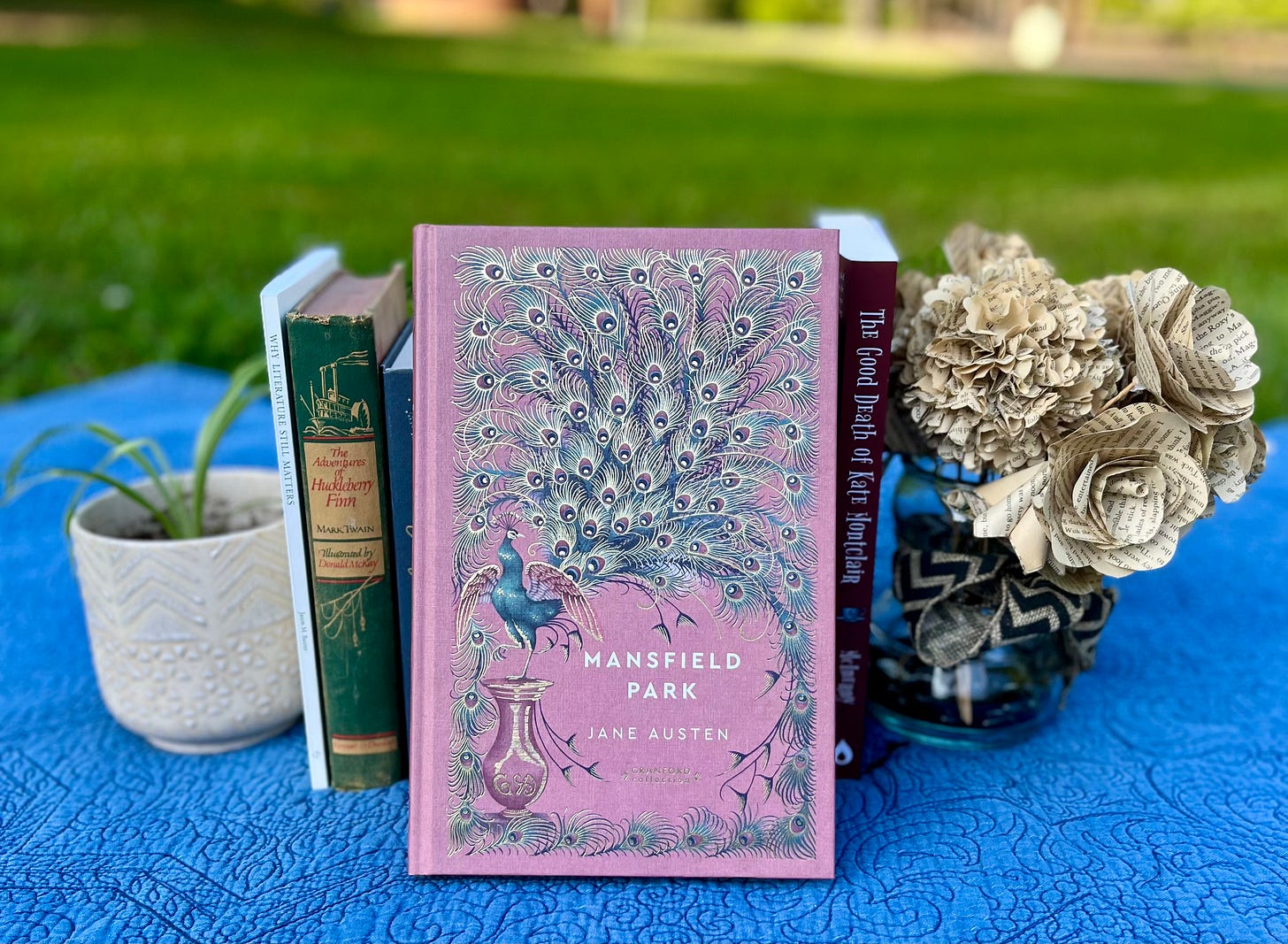
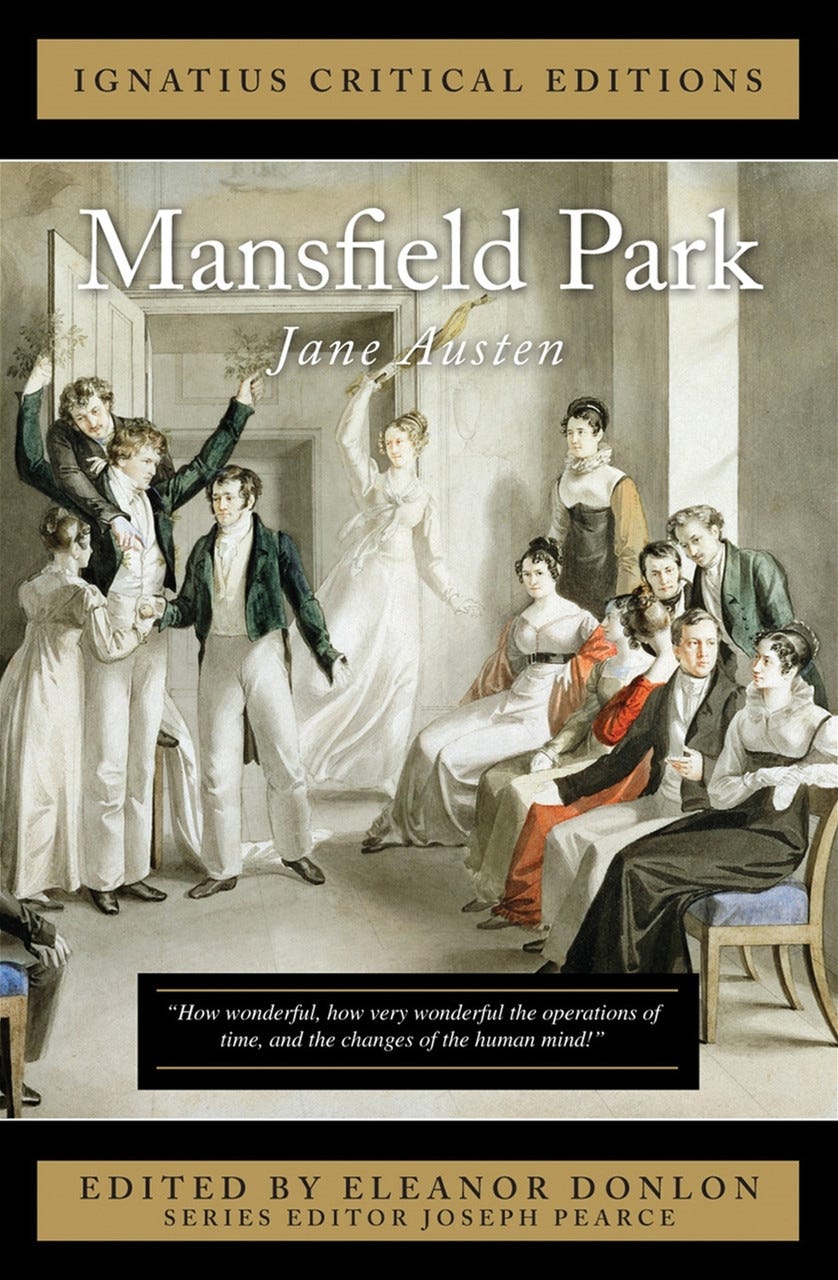

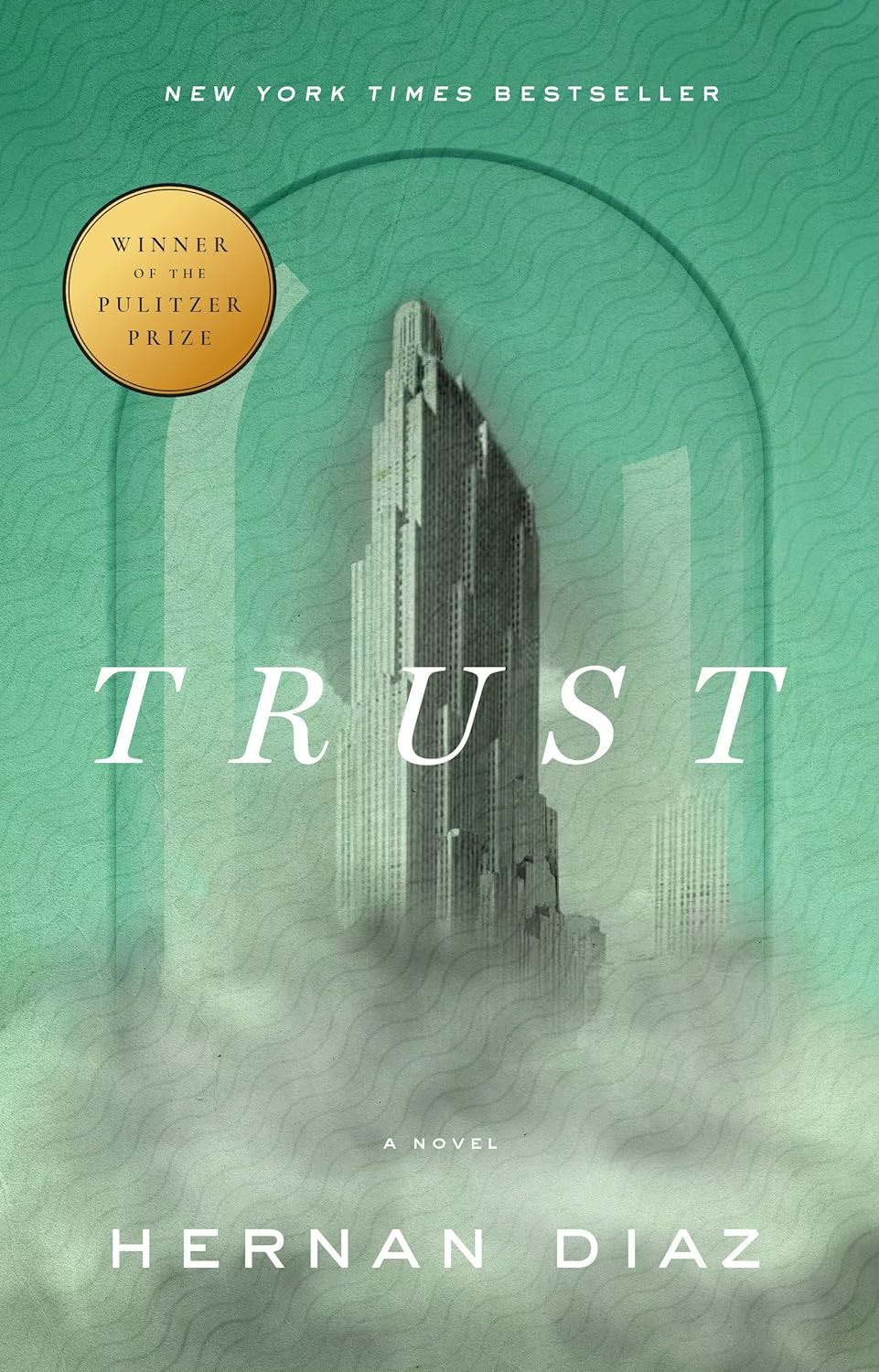
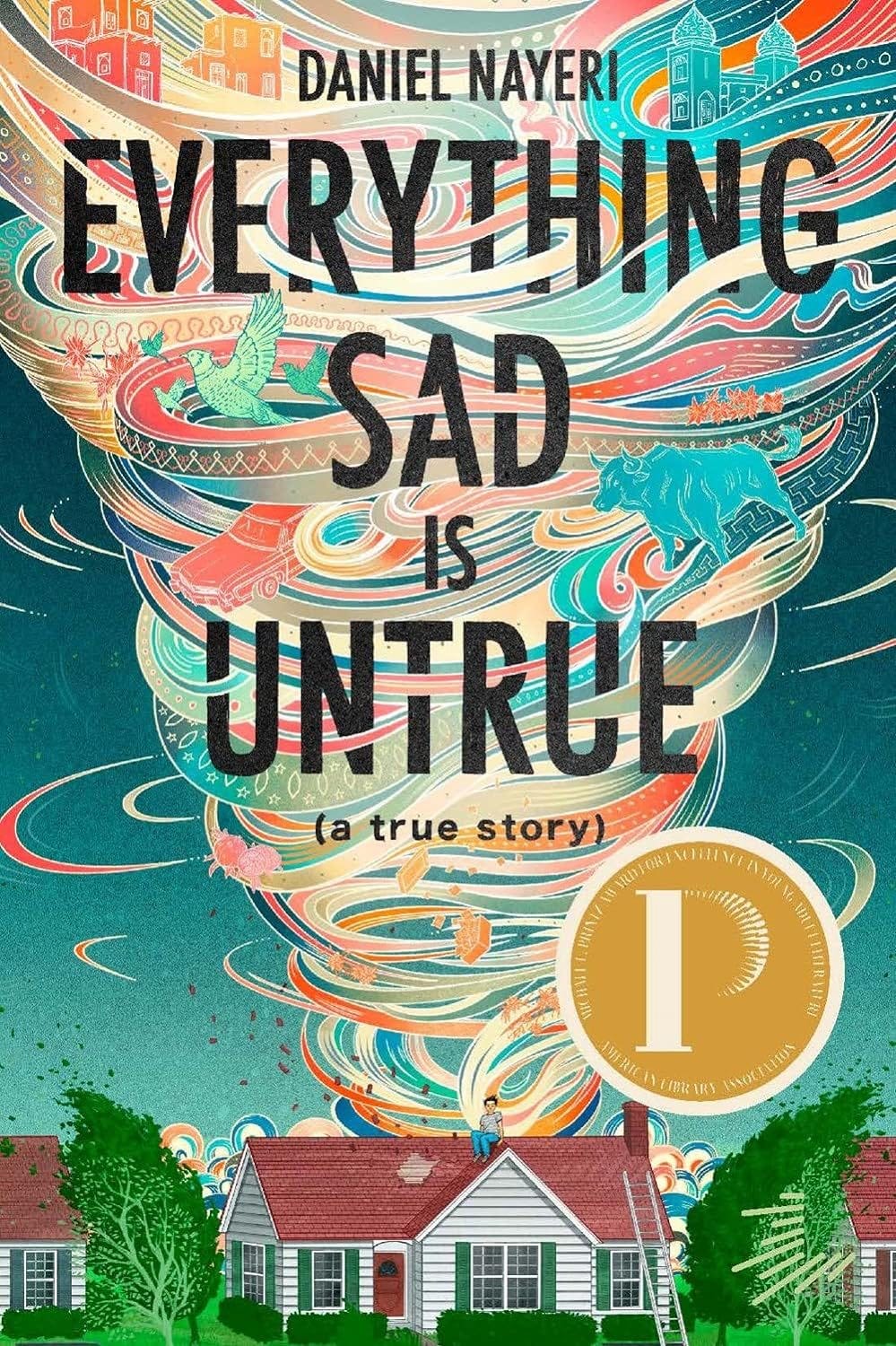
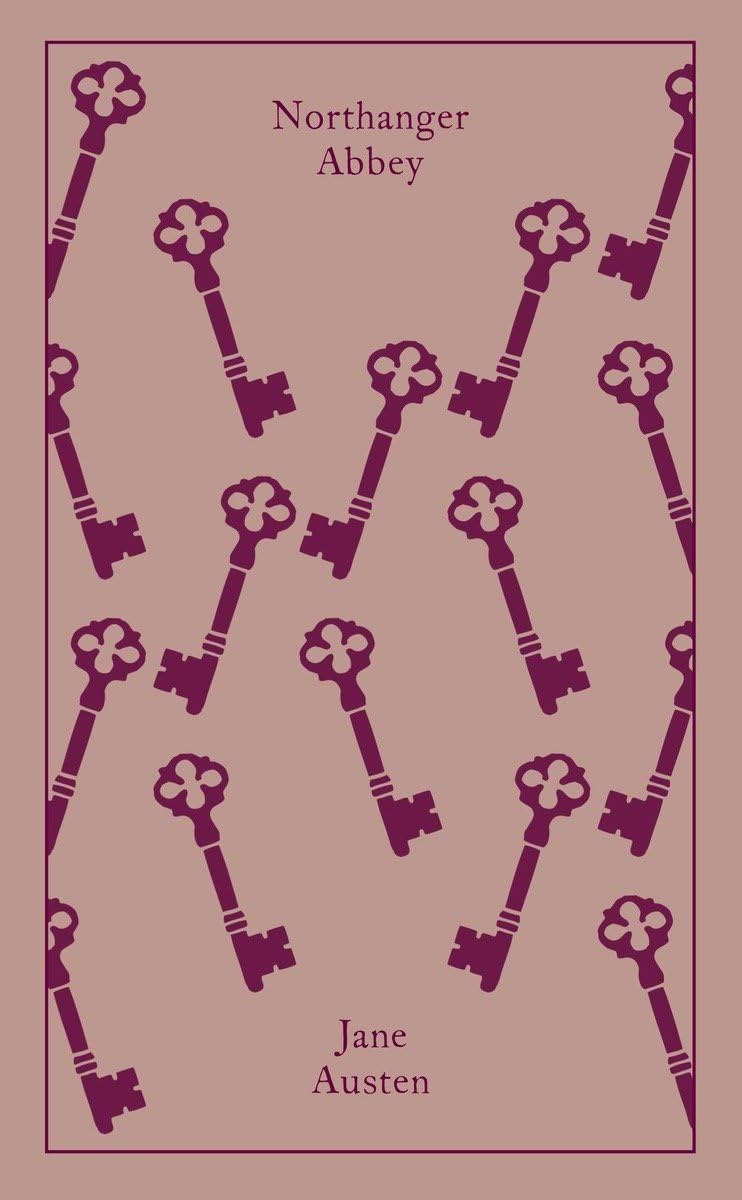

Mansfield Park has risen in my estimation with every read. I think some of Austen’s most fascinating characters are in it, not to mention her best (worst) villain in Mrs. Norris.
Oh boy, Oh boy, I think I got this one right too🥰